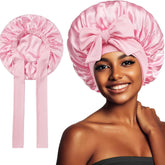Rihanna and Léna Situations expose backstage failures on textured hair

Two high-profile figures—Rihanna and social creator Léna Situations—have recently recounted familiar frustrations with professional hair care for textured hair. Their public reflections have reopened conversations about training, salon inclusivity and the standards set by brands such as Fenty Hair, which has promoted more inclusive backstage practices. For the UK hair industry, these accounts are a reminder that celebrity experiences often mirror the wider challenges many clients face when seeking expert care for textured hair types.
What the stories reveal about professional gaps
Both accounts highlight a recurring theme: clients with textured hair can encounter stylists or backstage teams who are ill-equipped to meet their needs. This is not only about technique, but also about understanding hair history, appropriate product choices and the time required for certain services. When professionals lack specific training in textured hair, outcomes can be unsatisfactory and clients can feel misunderstood or unsafe entrusting their hair to industry professionals.
Why this matters to salons and stylists
The significance extends beyond individual appointments. Inclusive, competent care is a business imperative: clients return when they feel seen and correctly serviced, and reputations travel quickly—especially in the age of social media. Equally, brands and high-profile teams that prioritise education and representation, such as the backstage approaches attributed to Fenty Hair, set a benchmark. Their practices signal to the wider industry that inclusive training and product development are essential, not optional.
Practical steps salons can take today
Addressing these gaps requires deliberate action. Salons that want to improve their approach to textured hair can begin with straightforward, practical measures:
- Invest in targeted training: seek tuition and workshops that focus specifically on textured hair techniques—detangling, cutting, colouring and styling methods that respect curl pattern and hair health.
- Diversify products and tools: ensure a range of professional products suitable for different porosities and curl types, plus tools designed to minimise breakage (wide-tooth combs, diffusers, gentle brushes).
- Encourage consultation time: build longer initial consultations into appointment schedules so stylists can discuss hair history, expectations and at-home care with clients.
- Build a reference library: maintain educational materials, from manufacturer guides to stylist-led notes, so the whole team learns consistent, evidence-based approaches.
- Foster an inclusive culture: representation matters behind the chair as well as in marketing—diverse hiring, ongoing mentoring and an open learning environment encourage better outcomes for clients.
These steps are practical to implement and can be scaled to studios of any size. Small changes—allocating extra time for certain services, stocking a few targeted products—can immediately improve client trust and results.
Industry context and the role of brands
Brands that prioritise inclusivity influence standards across the supply chain. When product developers and brand teams test and showcase formulas across a range of hair types, they signal to salons and stylists the importance of broad applicability. Likewise, when high-profile teams publicise inclusive backstage practices, it raises expectations across editorial and commercial environments. For the UK market, this feeds into a wider conversation about accessibility to education and whether training providers are keeping pace with the diversity of clients entering salons.
Takeaway
Rihanna and Léna Situations’ experiences are reminders that even celebrated clients can encounter basic professional shortcomings when it comes to textured hair. For salons, stylists and industry educators, the response should be practical and sustained: invest in training, refine consultation practices, diversify products and normalise inclusive backstage standards. Doing so improves outcomes for clients and strengthens a salon’s reputation in an increasingly discerning market.
Stay Updated: Read more UK hair industry news and innovations on Hairporium News.







